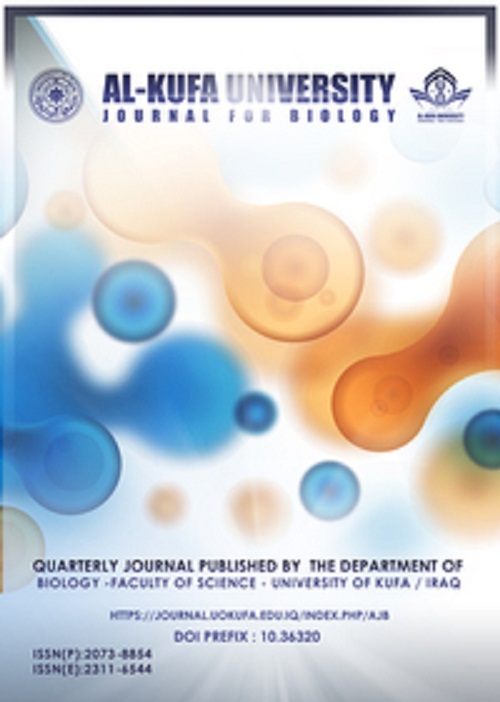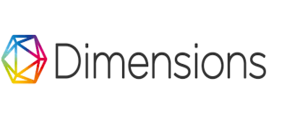The protective effect of rutin supplement in Azithromycin-induced thyroid gland gland toxicity in male albino rats
DOI:
https://doi.org/10.36320/ajb/v15.i3.12701Keywords:
rutin , azithromycin , reduction , damage , Thyroid glandAbstract
The current study was conducted in the animals house / Department of biology / Al- University of Qadisiyah from November to February This is for the purpose of studying the effect of rutin to reducing the potential effects of azithromycin on functional of thyroid gland in albino rats
This examination aim to research the defensive ability of flavonoid Rutin against Azithromycin incited thyroid gland injury in experimental rats. 40 male albino rats , were divided in four groups: first group (G1) control , was given distiller water orally. The second group (G2) , was treated as a dose of (30) mg/kg of azithromycin for 10 days , third group (G3) was treated as a dose of (50) mg/kg of rutin for 10 days , and the fourth (G4) was treated as a dose of (30) mg/kg of azithromycin and (50) mg/kg of rutin for 10 days.
Results, indicated that caused a significantly decline (P<0.05) T3 , T4 and Thyroid Stimulating Hormone (TSH ) levels in plasma of G2 compared with G1, The results also showed a significant increase in (MDA)and decrease in the level of (SOD) in a group2 (G2) Compared with the control group,while the level of T3 , T4 , TSH, MDA and SOD was normal in (G3) and (G4) , this results proved that used rutin to lessen damage effects of by reduction of generating ROS and ameliorate thyroid toxicity in rats , by restoring normal hormones levels .
The histological study: also showed that pathological histological changes occurred in (G2), represented by changing in diameter of the thyroid gland's follicles there were smaller irregular thyroid follicles, an increase in the thickness of the lining layer of the vesicles and the occurrence of hyperplasia , and colloids as well as bubbles in the colloidal substance.
Downloads
References
Maqsood, S., Singh, P., Samoon, M.H., Balange, A. K.(2010). Effect of dietary chitosan on nonspecific immune response and growth of cyprinus carpio challenged with aeromonas hydrophila. International Aquatic Research, 2(2),77-85.
Vongtau, H. O., Abbah, J., Chindo, B. A., Mosugu, O., Salawn, A. O., Kwanashie, H. O., & Gamaniel, K. S. (2005). Central inhibitory effects of the methanol extract of neorautanenia mitis root in rats and mice. Pharmaceutical Biology, 43(2), 113-120. DOI: https://doi.org/10.1080/13880200590919401
Wang, T. Y., Li, Q., & Bi, K. S.(2018). Bioactive flavonoids in medicinal plants : Structure, activity and biological fate . Asian Journal of Pharmaceutical Scinces, 13(10,12-23. DOI: https://doi.org/10.1016/j.ajps.2017.08.004
Rengasamy, K. R., Khan, H., Gowrishankar, S., Lagoa, R. J., Mahomoodally, F. M., Khan, z., Suroowan, S., et al . (2019). The role of flavonoids in autoimmune diseases : therapeutic update pharmacology & therapeutics , 194, 107-131..
Shengqiang, T., Jizhong, Y., Gang, C., & Lou, J. (2009). Purification of Rutin and Nicotiflorin from the Flowers of Edgeworthia chrysantha Lindl. by High-Speed Counter-Current Chromatography. Journal of Chromatographic Science, 47(5), 341–344. DOI: https://doi.org/10.1093/chromsci/47.5.341
Inal, M., Altinisik, M., & Bilign, M. D.(2002). The effect of quercetin on renal ischemia and reperfusion injury in the rat. Cell Biochemistry and Function, 20(4), 291-296. DOI: https://doi.org/10.1002/cbf.953
Huk, I., Brovkovych, V., Nanobash Vili, J., Weigel, G., Neumyer, C., Partyka, L., Patton, S., & Malinski, T. (1998) . Bioflavonoid quercetin scavenges superoxide and increases nitric oxide concentration in ischaemia-reperfuction injury : an experimental study. The British Journal of Surgery . 85(8), 1080-1085. DOI: https://doi.org/10.1046/j.1365-2168.1998.00787.x
Rogerio, A. P., Dora, C. L., Andrade, E. L., Chaves, J. S., Silva, L. F., Lemos-Senna, E., & Calixto, J. B. (2010). Anti-inflammatory effect of quercetin-loaded microemulsion in the airways allergic inflammatory model in mice. Pharmacological Research, 61(4), 288-297. DOI: https://doi.org/10.1016/j.phrs.2009.10.005
Yeh, C. H., Yang, J. J., Yang, M. L., Li, Y. C., & Kuan, Y. H. (2014). Rutin decreases lipopolysaccharide-induced acute lung injury via inhibition of oxidative stress and the MAPK–NF-κB pathway. Free Radical Biology and Medicine, 69, 249-257. DOI: https://doi.org/10.1016/j.freeradbiomed.2014.01.028
Joskova, M., Franova, S., & Sadlonova, V. (2011). Acute bronchodilator effect of quercetin in experimental allergic asthma. Bratisl Lek Listy, 112(1), 9-12.
Al-Rejaie, S. S., Aleisa, A. M., Sayed-Ahmed, M. M., AL-Shabanah, O. A., Abuohashish, H. M., Ahmed, M. M., Al-Hosaini, K.A., & Hafez, M. M. (2013). Protective effect of rutin on the antioxidant genes expression in hypercholestrolemic male Westar rat. BMC Complementary and Alternative Medicine, 13 (136), 1-9. DOI: https://doi.org/10.1186/1472-6882-13-136
Khan, R. A., Khan, M. R., & Sahreen, S. (2012a). CCl 4-induced hepatotoxicity: protective effect of rutin on p53, CYP2E1 and the antioxidative status in rat. BMC Complementary and Alternative Medicine, 12(1), 178. DOI: https://doi.org/10.1186/1472-6882-12-178
Matzneller, P., Krasniqi, S., Kinzig, M., Sorgel, F., Huttner, S., Lackner, E., and Zeilinger, M. (2013). Blood , tissue ,and intercellular concetration of azithromycin during and after end of therapy . Antimicrobial agents and chemotherapy, 57(4), 1736-1742. DOI: https://doi.org/10.1128/AAC.02011-12
Parnham, M.J., Haber, V. E., Giamarellos-Bourboulis, E. J., Perletti, G., Verleden, G. M., and Vos, R.(2014). Azithromycin :mechanism of action and their relevance for clinical application .Pharmacology and therapeutics ,143(2),225-245. DOI: https://doi.org/10.1016/j.pharmthera.2014.03.003
Araujo, L. and Demoly, P. (2008) Macrolides allergy. Current Pharmacological Decisions 14, 2840-2862. DOI: https://doi.org/10.2174/138161208786369812
Nilsson M and Fagman H (2017) Development of the thyroid gland. Development 144: 2123–2140. DOI: https://doi.org/10.1242/dev.145615
Rengasamy, K. R. R., Khan, H., Gowrishankar, S., Lagoa, R. J. L., Mahomoodally, F. M., Khan, Z., Suroowan, S., Tewari, D., Zengin, G., Hassan, S. T. S., & Pandian, S. K. (2019). The role of flavonoids in autoimmune diseases: Therapeutic updates. Pharmacology & Therapeutics, 194, 107–131. DOI: https://doi.org/10.1016/j.pharmthera.2018.09.009
Spitz, D. R., & Oberley, L. W. (1989). An assay for superoxide dismutase activity in mammalian tissue homogenates. Analytical biochemistry, 179(1), 8-18. DOI: https://doi.org/10.1016/0003-2697(89)90192-9
Brouillard, R., & Cheminant., A. (1988). Flavonoids and plant color . In: Cody, V., Middleton, E., Harborne J. B. (eds) , plant flavonoids in biology and medicine : biochemical, cellular and medicinal properties. Alan R. Liss, Inc., New York, pp93-106.
Al-Rawi, K.M. and KhalafAllah, A.M. (2000).Design and Analysis of Experiments.National Library for Publication, University of Mosul, Ministry of Higher Education and Scientific Research, Iraq.
Helal, M., Shawky, M., Elhusseiny, S., and Abd Elhameed, A. (2021). Lactoferrin Ameliorates Azithromycin-induced Cardiac Injury: Insight into Oxidative Stress/TLR4/NF-κB Pathway. Journal of Advanced Pharmacy Research, 5(2), 285-296. DOI: https://doi.org/10.21608/aprh.2021.62735.1122
Paulose, P., Juliet, S., Samraj, S., Nair, S. N., Chandrasekhar, L., George, A. J., ... and Ravindran, R. (2016). Ameliorative effect of vitamin E on azithromycin induced biochemical and histological changes in liver tissue of rats. Adv. Anim. Vet. Sci, 4(2), 85-91. DOI: https://doi.org/10.14737/journal.aavs/2016/4.2.85.91
Mobasher Ahmad, Iqra Masood, Hafeez Ikram, Rukhsana Anwar, Afroze Mobasher, Sairah Hafeez Kamran and Usman Akhtar, (2018). fharmacological Investigation of Phoenix dactylifera L. in Azithromycin Induced Toxicity. International Journal of Pharmacology, 14: 61-67. DOI: https://doi.org/10.3923/ijp.2018.61.67
Hamza, R. Z., El-Shenawy, N. S., & Ismail, H. A. (2015). Protective effects of blackberry and quercetin on sodium fluoride-induced oxidative stress and histological changes in the hepatic, renal, testis and brain tissue of male rat. Journal of Basic and Clinical Physiology and Pharmacology, 26(3), 237-251. DOI: https://doi.org/10.1515/jbcpp-2014-0065
.. Ganeshpurkar, A., & Saluja, A. K. (2017). The pharmacological potential of rutin . Saudi pharmaceutical journal, 25(2), 149-164. DOI: https://doi.org/10.1016/j.jsps.2016.04.025
. Yazar, E., Altunok, V., Elmas, M., Traş, B., Baş, A. L., & Özdemir, V. (2002). The effect of tilmicosin on cardiac superoxide dismutase and glutathione peroxidase activities. Journal of Veterinary Medicine, Series B, 49(4), 209- 210. DOI: https://doi.org/10.1046/j.1439-0450.2002.00545.x
. Elsawy, H., Badr, G.M., Sedky, A., Abdallah, B.M., Alzahrani, A.M., & Abdel-Moneim, A.M. (2019). Rutin ameliorates carbon tetrachloride (CCl4)-induced hepatorenal toxicity and hypogonadism in male rats. PeerJ, 7,e7011. DOI: https://doi.org/10.7717/peerj.7011
Ozlem Atli,1 Sinem Ilgin,1 Hakan Altuntas,1 and Dilek Burukoglu(2015) Evaluation of azithromycin induced cardiotoxicity in rats Int J Clin Exp Med. 2015; 8(3): 3681–3690
Muller, I., Giani, C., Zhang, L., Grennan‐Jones, F. A., Fiore, E., Belardi, V., ... & Ludgate, M. E. (2014). Does thyroid peroxidase provide an antigenic link between thyroid autoimmunity and breast cancer?. International journal of cancer, 134(7), 1706-1714.. DOI: https://doi.org/10.1002/ijc.28493
Ali, M., Mudagal, M. P., & Goli, D. (2009). Cardioprotective effect of tetrahydrocurcumin and rutin on lipid peroxides and antioxidants in experimentally induced myocardial infarction in rats. Die Pharmazie-An International Journal of Pharmaceutical Sciences, 64(2), 132–136.
. Usadadia, V.; Patel, J. M.; Vihol, P. D. and Urkude, A. P. (2020). Protective Effect of Quercetin on Azithromycin Induced Hepatotoxicity and Nephrotoxicityin Wistar Rats. Int. J. Curr. Microbiol. App. Sci. 9(9): 2926- 2934. DOI: https://doi.org/10.20546/ijcmas.2020.909.360
Koffas, A., Murray-Lyon, I. M., and Williams, R. (2017). Azithromycin-induced cholestatic hepatitis. Oxford medical case reports, 2017(6), omx027. DOI: https://doi.org/10.1093/omcr/omx027
. Ghiasi, M., Azadnia, A., Arabieh, M., & Zahedi, M. (2012). Protective effect of rutin (vitamin p) against heme oxidation: A quantum mechanical approach. Computational and Theoretical Chemistry, 996, 28–36. DOI: https://doi.org/10.1016/j.comptc.2012.07.009
Al-Yasiri, Muhammad Fadel Saleh (2022). Cardiac histological and biochemical study of the protective role of Rutin in acute oxidative stress induced by hydrogen peroxide H2O2 in male albino rats. Master's thesis, College of Education, Al-Qadisiyah University.
Hollinger, K., Shanely, R. A., Quindry, J. C., & Selsby, J. T. (2015). Long-term quercetin dietary enrichment decreases muscle injury in mdx mice. Clinical Nutrition, 34(3), 515–522. DOI: https://doi.org/10.1016/j.clnu.2014.06.008
Downloads
Published
How to Cite
Issue
Section
License
Copyright (c) 2023 Adel Khadim Hannan, Hussein Abbas

This work is licensed under a Creative Commons Attribution 4.0 International License.
which allows users to copy, create extracts, abstracts, and new works from the Article, alter and revise the Article, and make commercial use of the Article (including reuse and/or resale of the Article by commercial entities), provided the user gives appropriate credit (with a link to the formal publication through the relevant DOI), provides a link to the license, indicates if changes were made and the licensor is not represented as endorsing the use made of the work.












